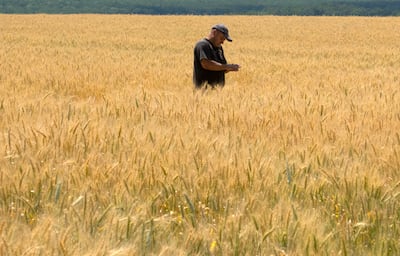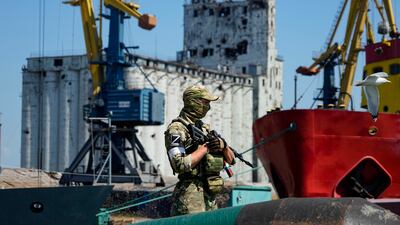Britain’s Foreign Secretary Liz Truss is travelling to Turkey for crisis talks on the global food shortage caused by Russia’s blockade of Ukrainian ports.
Ms Truss will travel to Ankara on Wednesday, seeking support for an international effort to free up the 25 million tonnes of grain trapped in Odesa to prevent serious global shortages, particularly in Africa and the Middle East.
Turkey controls the vital Black Sea entry into the Bosporus strait through the Montreux Convention, which allows it to block ships during war.
Ankara also maintains a working relationship with Moscow with the potential to negotiate an agreement in which Russia allows free movement of shipping in the Black Sea.
With last year’s grain supply filling up all the storehouses and Ukrainian farmers soon harvesting this year’s crop, it is now critical to get foodstuffs out of the country.
“We only have a number of weeks to be able to achieve that,” Ms Truss told Parliament.
“We are doing what we can with our allies to provide safe passage to make sure that Odesa is fully defended. [On Wednesday] I'll be travelling to Turkey to talk to them about how we can do more to get the grain out of Odesa.”
James Cleverly, a junior minister, outlined his fears that “hunger in the global south as a weapon of war and as a point of leverage” was a real factor as a result of the conflict.

“The world should be clear that it is Vladimir Putin alone that is creating these problems with his blockade of grain exports from Ukraine,” he said.
“He could turn on the tap of food to the global south tomorrow and we demand that he does.”
He said Britain would continue working with the UN to help bring the food out but it was Mr Putin’s blockade “that is creating that hunger and he should be held accountable for it”. The minister for Europe and North America raised concerns President Vladimir Putin used "hunger as a weapon of war”, suggesting that he could “turn on the tap” for food exports anytime he chose.
“It should be noted that the 25 million tonnes of grain currently stuck in Ukraine is equivalent to the yearly consumption of the least developed countries in the world,” he added.
UN-flagged warships will need entry into the Black Sea not only to escort food convoys but also to remove the mines placed by both Russia and Ukraine.
“For the Ukrainians to de-mine the access to Odesa would be an act of self-harm and the trust that the two sides have each other is clearly incredibly low,” a western official said on Monday.
“So, why would the Ukrainians voluntarily put themselves in that position? And could the Russians be trusted to honour any agreement?”
It is also hoped that a high-level meeting of foreign ministers in Berlin on Friday to address the looming food crisis will put further pressure on Moscow.
US Secretary of State Antony Blinken will be among those attending the “Uniting for Global Food Security” hosted by German Foreign Minister Annalena Baerbock.


